 Petzlover
Petzlover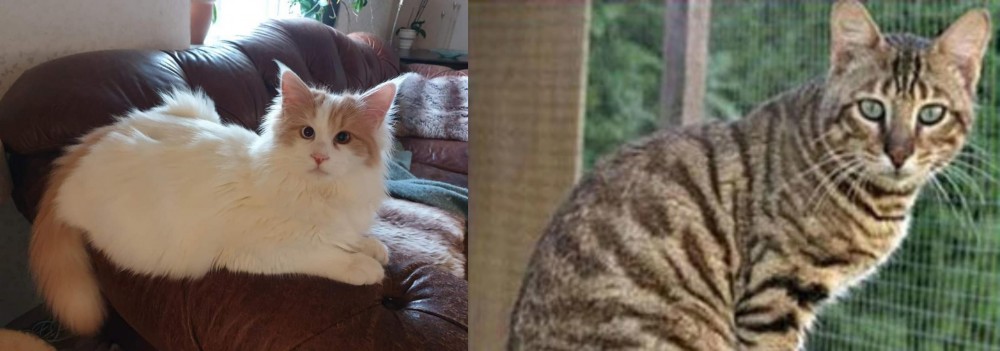 Turkish Van is originated from Turkey but Ussuri is originated from Russia. Both Turkish Van and Ussuri are having almost same weight. Both Turkish Van and Ussuri has almost same life span. Both Turkish Van and Ussuri has same litter size. Both Turkish Van and Ussuri requires Low Maintenance.
Turkish Van is originated from Turkey but Ussuri is originated from Russia. Both Turkish Van and Ussuri are having almost same weight. Both Turkish Van and Ussuri has almost same life span. Both Turkish Van and Ussuri has same litter size. Both Turkish Van and Ussuri requires Low Maintenance.
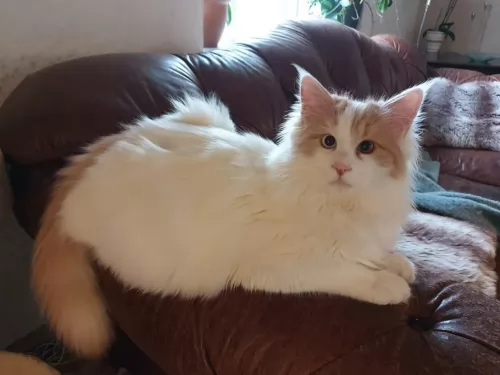 Hailing from Turkey, the Turkish Van was brought to the UK in 1955 by 2 British women, Laura Lushington and Sonia Halliday.
Hailing from Turkey, the Turkish Van was brought to the UK in 1955 by 2 British women, Laura Lushington and Sonia Halliday.
These cats were used as the foundation stock of the breed. They were brought to the United States in 1982 and accepted into championship with the Cat Fanciers’ Association in 1994.
They are a very rare breed and no other breed is allowed to be mixed into the cat's breeding schedule. All registered Turkish Van cats can have their ancestry traced back to the imported cats of Laura Lushington.
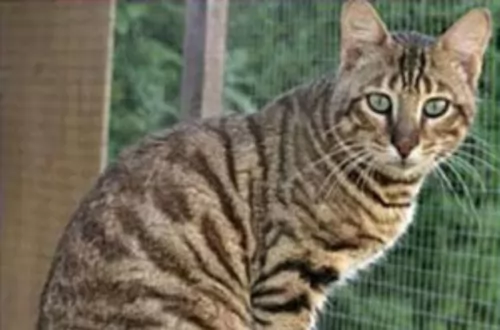 Not much is known about the Ussuri cat but it does seem to be a rare natural cat breed. The cat originates from Russia but is rare even in that country.
Not much is known about the Ussuri cat but it does seem to be a rare natural cat breed. The cat originates from Russia but is rare even in that country.
A breed standard for this cat was published in the 1990s, but nothing has been heard since and its breed status isn't clear. It does seem that the Ussuri's numbers are dwindling due to interbreeding with local domestic cats. Also, the cat doesn't have a breeding program and it is expected that the cat will just quietly disappear.
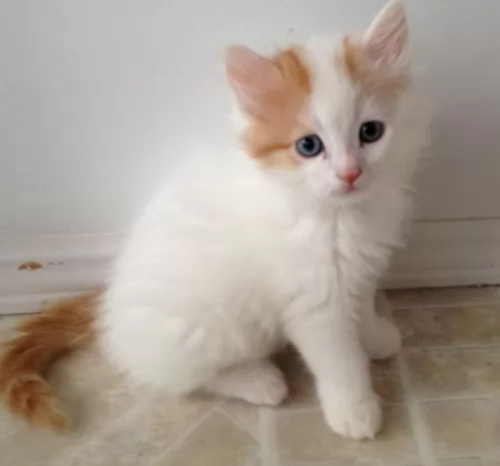 This is a medium to large-sized cat weighing roughly 3 to 8kg. It’s a semi-long-haired domestic cat breed that was actually developed in the United Kingdom with a selection of cats from Turkey.
This is a medium to large-sized cat weighing roughly 3 to 8kg. It’s a semi-long-haired domestic cat breed that was actually developed in the United Kingdom with a selection of cats from Turkey.
The breed is distinguished by the Van pattern where the color is restricted to the head and tail. So the cat is white with color on the head and the tail. The Turkish Van has no undercoat and the cat has a sleek appearance.
The cat is quite long and its back legs are slightly longer than its front legs. The paws are large and they are strong jumpers.
These cats are playful, active, and independent and they are also excellent hunters. They are affectionate and form strong bonds with their human families.
They get on well with kids as well as with other pets. Energetic and agile, they love to leap up onto high places. For a cat, they also have this fascination with water and may well follow their human into a swimming pool or lake.
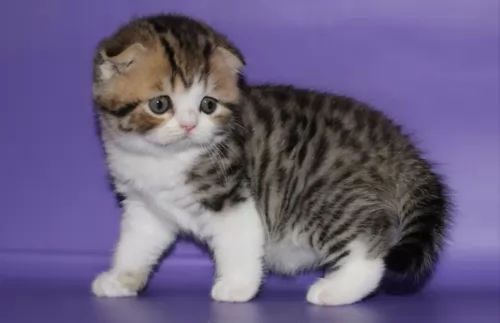 The Ussuri cat can be described as a medium-sized cat that weighs between 3 and 6kg.
The ears often have those tufts, similar to that of a lynx. The body of the Ussuri cat is muscular. The neck is firm, the legs medium length and muscular with rounded paws. The tail has a rounded tip. The coat is short and glossy and there is a thick undercoat.
It has a mix of spots with lines around the face.There are also line on the legs and the tail is ringed. It definitely lives up to looking like a wild cat.
The Ussuri cat can be described as a medium-sized cat that weighs between 3 and 6kg.
The ears often have those tufts, similar to that of a lynx. The body of the Ussuri cat is muscular. The neck is firm, the legs medium length and muscular with rounded paws. The tail has a rounded tip. The coat is short and glossy and there is a thick undercoat.
It has a mix of spots with lines around the face.There are also line on the legs and the tail is ringed. It definitely lives up to looking like a wild cat.
The Ussuri has a wild heritage, and domesticated, they are smart and intelligent. Of course, being on the wild side, they like to hunt and will present you with mice, rats, and birds. They are quite capable of forming strong bonds with their human owners, and tend to gravitate particularly to one member of the family.
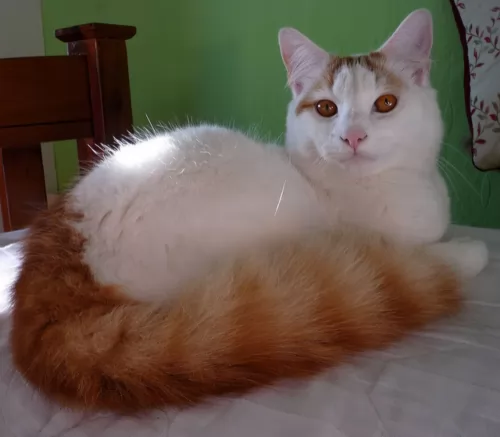 Lively, social, and intelligent, the Turkish Van is going to make you a wonderful pet and companion.
Lively, social, and intelligent, the Turkish Van is going to make you a wonderful pet and companion.
He is an active cat and will require you to play with him and provide some form of exercise for him.
He likes to leap up onto perches so getting him a climbing tree will serve him well as he is a cat that loves perching on high up places.
These cats are also low maintenance which simply adds to them being such perfect pets for single people, couples, families and seniors, just so long as he is provided with lots of love and care.
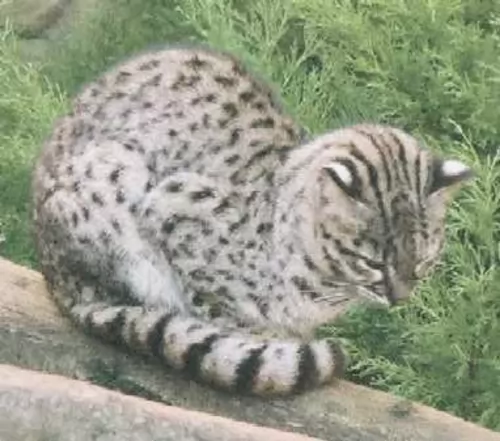 Ussuri Cats are very smart cats and they are able to adapt fairly quickly to their surroundings. Think twice before you invest in a Ussuri as they have different needs to your regular domestic cat.
These are cats that won't slot easily into indoor life and that is why you need to think carefully before you bring such a cat home as a pet.
While they can be affectionate to their human family, they are restless cats, wanting to get away to that wild life they once knew.
Ussuri Cats are very smart cats and they are able to adapt fairly quickly to their surroundings. Think twice before you invest in a Ussuri as they have different needs to your regular domestic cat.
These are cats that won't slot easily into indoor life and that is why you need to think carefully before you bring such a cat home as a pet.
While they can be affectionate to their human family, they are restless cats, wanting to get away to that wild life they once knew.
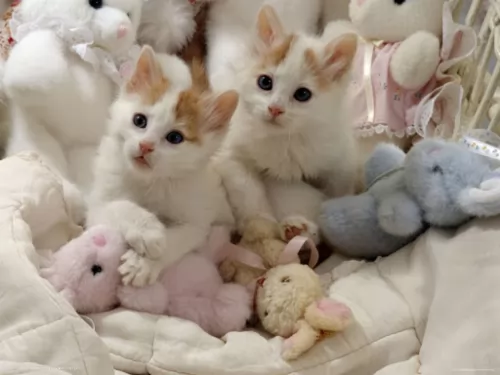 Your Turkish Van counts on you to ensure his health and wellbeing. This will ensure he lives a long and healthy life.
Your Turkish Van counts on you to ensure his health and wellbeing. This will ensure he lives a long and healthy life.
Obesity is a major disease that contributes to many illnesses in cats. Excess weight is one of the factors for the development of arthritis and diabetes as well as some life-threatening diseases.
All kinds of parasites can invade your Turkish Van’s body. . Many types of parasites can be detected with a fecal exam, so a trip to your vet may be necessary.
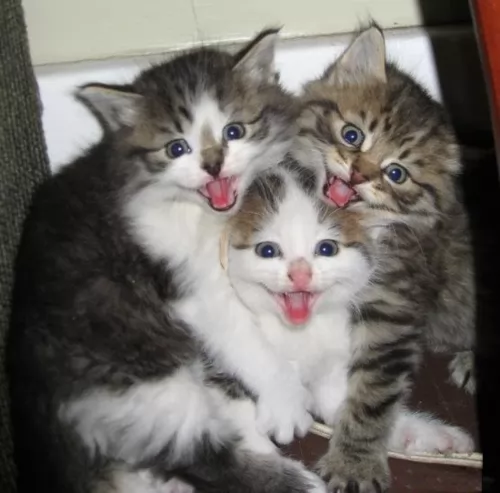 These are strong, robust cats, but even so, for your own peace of mind, a visit to the vet every now and them can be a good thing to make sure everything is aright with your cat.
Healthy they may be, but they can still pick up any one of the many common cat diseases there are.
With a good diet, plenty of exercise and a caring environment, they can reach 16 years of age or older.
These are strong, robust cats, but even so, for your own peace of mind, a visit to the vet every now and them can be a good thing to make sure everything is aright with your cat.
Healthy they may be, but they can still pick up any one of the many common cat diseases there are.
With a good diet, plenty of exercise and a caring environment, they can reach 16 years of age or older.
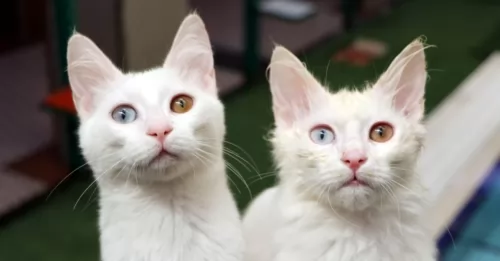 One of the most important things with a cat is diet. The cat is a carnivore. Watch his diet, and make sure he gets plenty of meaty food.
One of the most important things with a cat is diet. The cat is a carnivore. Watch his diet, and make sure he gets plenty of meaty food.
Check with your vet if you aren’t sure how to feed your cat. There must always be a constant supply of fresh, cool water available and both food and water bowls must be washed regularly.
Regularly brush your cat’s coat gently and at the same time check the body over for any unusual lumps. If you discover a new lump, get your cat to the vet.
Be sure to schedule in your cat’s vaccinations as without these your cat can die from some of the more dangerous ones.
Another wise move, if at all possible, is to sign up for pet health insurance as then you won’t dread it financially when your vet requests medical tests be done on your cat.
There are simple things you can do to ensure the longevity of your beloved cat. Good food, exercise, fresh water, and plenty of love and attention.
Turkish Vans can have problems with their teeth. Teeth brushing can be massively traumatic and uncomfortable for your pet, but the best diet and vet care will ensure healthy teeth.
Cats are meticulous about hygiene so ensure the litter box is kept clean. Remove the cat’s feces every single day.
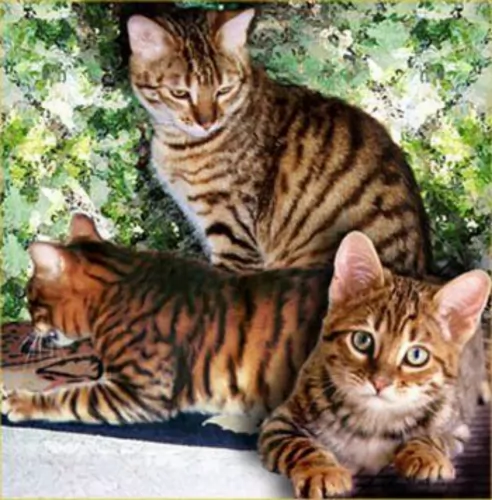 The short coat of Ussuri cats is glossy and close-lying, and a brush once a week will be fine for this cat.
Provide your pet with an outside enclosure. These are cats with a wild side, and to ensure you don't get frustrated with him, an enclosure with climbing equipment will be a good idea.
Ensure the cat gets plenty of exercise. You will need to invest in interactive toys that encourage this intelligent cat to think things out.
Only the very highest quality meat-diet will be good enough for this cat. Ensure he has a constant supply of fresh cool water.
In his outside enclosure, you can include a paddling pool, and in the wilds, cats like to paw at water and wade in.
Provide your pet with a comfortable sleeping area.
The short coat of Ussuri cats is glossy and close-lying, and a brush once a week will be fine for this cat.
Provide your pet with an outside enclosure. These are cats with a wild side, and to ensure you don't get frustrated with him, an enclosure with climbing equipment will be a good idea.
Ensure the cat gets plenty of exercise. You will need to invest in interactive toys that encourage this intelligent cat to think things out.
Only the very highest quality meat-diet will be good enough for this cat. Ensure he has a constant supply of fresh cool water.
In his outside enclosure, you can include a paddling pool, and in the wilds, cats like to paw at water and wade in.
Provide your pet with a comfortable sleeping area.